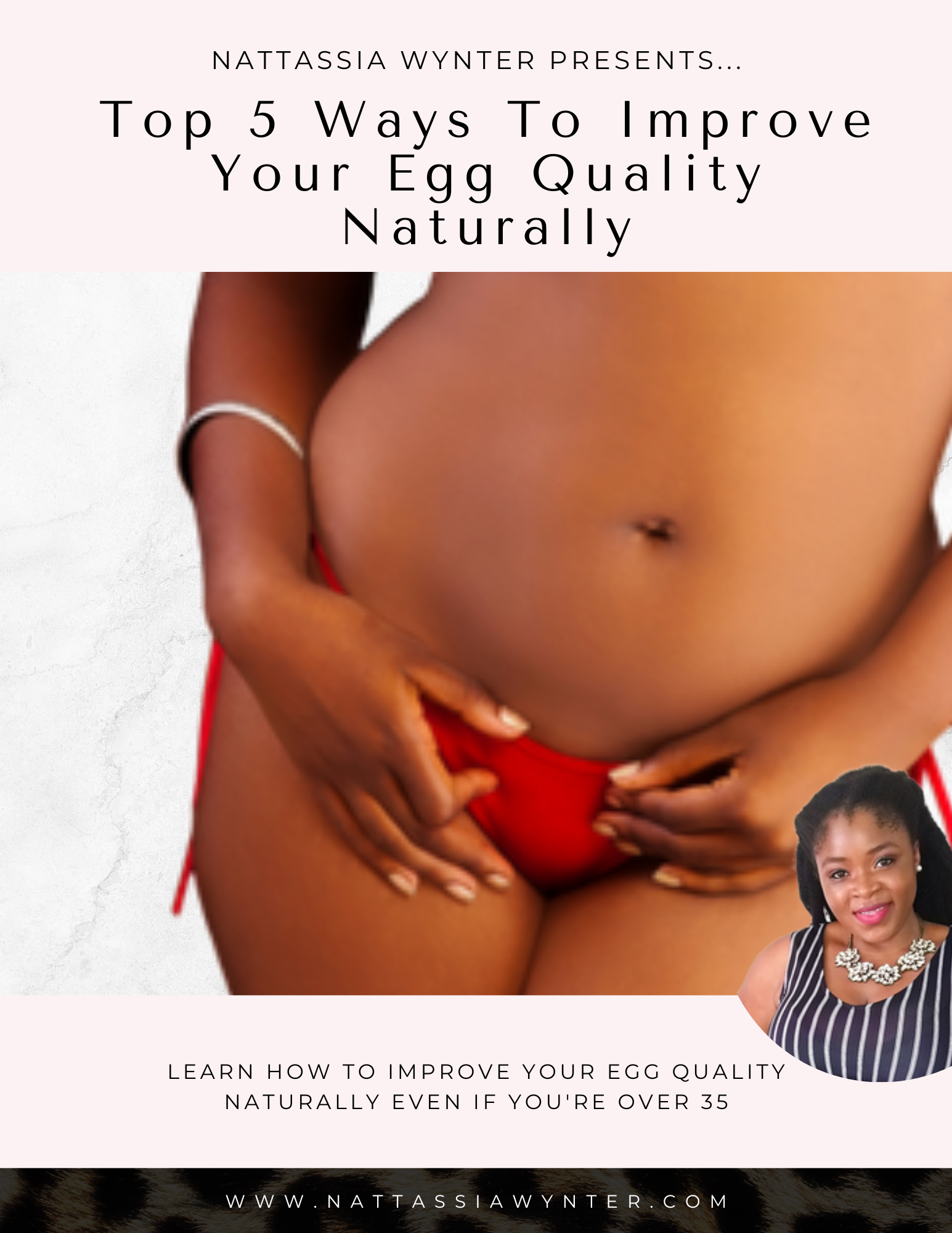What foods should you avoid when improving egg quality is one of the questions that came up during the first launch of my fertility smoothies challenge. So I thought it would be worth creating a blog about it.
I’ve already created a whole video training on what foods to avoid for egg quality in more detail, but today I wanted to highlight just some of the foods you should stay away from and why.
If you want to learn more about what foods you should avoid when you are improving poor egg quality, and how to do so, you might want to get on the waitlist for my 28 Day Fertility Smoothie Challenge!
What Factors Affect Egg Quality
I’ve covered what poor egg quality means in my previous blog. If you want to check that out more in depth, you can read 11 Signs You Have Poor Egg Quality!
But to recap really quickly, poor egg quality means that your eggs are chromosomally abnormal or aneuploid.
In other words, your eggs aren’t developing well, so you don’t ovulate or your fertilized egg cannot properly implant in your uterine lining. And it can also mean that your eggs don’t contain the 23 pairs of chromosomes needed to produce a healthy baby.
And just to touch on the topic of poor egg quality a bit more, you should know that all women have some degree of abnormal (aneuploid) eggs. However, by the time a woman reaches 35, the quality of her eggs significantly declines.
I also want you to know that just because you have poor egg quality doesn’t mean there’s nothing you can do.
You absolutely can improve your egg quality and have a healthy baby with your own eggs!
There are several things that affect the quality of your eggs either for better or for worse, such as your lifestyle habits, environment and genetic factors.
The important thing to keep in mind is that whatever you do during the development stages of your eggs that are developing now, will either help or hinder the quality of your eggs in the next three to six months.
How Poor Food Choices Affect Egg Quality?
When it comes to things you can change, diet is one of them.
Certain foods you eat can have a negative effect on your eggs. So it is best to eliminate some of these things that may not promote good egg health.
One main reason food can have a positive or negative effect on your egg quality is because your eggs require a tremendous amount of energy. Some foods will supply your body with ample amounts of nutrients and energy, while others will rob your body of what it needs to even perform basic functions.
Another reason you should be mindful of what you eat is because, if your body is not given what it requires during the development stages of your eggs, then dna damage to your eggs can occur.
Certain foods, like dairy, can also cause inflammation in the body, which forces your body to have to use some of its energy, and other resources to reduce the inflammation in your body.
This effort to reduce the inflammation in your body and the energy it requires can take away from the energy your body would otherwise use to create healthy eggs.
Lastly, one more reason the foods you eat help or harm your eggs is that some foods increase oxidation, or reactive oxidation species (ROS) in your body, which literally destroys your egg cells.
While your body naturally produces some level of oxidation, added oxidative stress that affects your egg cells, introduced by the foods you eat, cause further dna damage or destroy the egg altogether.
3 Worst Foods For Egg Quality
So here are the foods that you may want to avoid if you want to improve your egg quality naturally.
Sugar
Sugar is probably one of the things you should reduce immediately. When it comes to egg quality, too much sugar in the blood is not good. Sugar spikes your insulin levels which drives your hormonal balance out of whack.
On top of that, sugar breaks down into carbohydrates, a type of macronutrient. Since most women with fertility issues already consume too many carbs and not enough protein or fats, sugar just further tips the scale for your carb intake.
Processed Foods
Processed foods are another type of unhealthy food that you should want to reduce if your goal is better egg quality.
It’s not just that food that has been overly processed is lacking in nutrients, but processed foods also commonly come in contact with bisphenol-A (BPA).
Bisphenol-A or BPA is a type of synthetic compound used in industrial equipment by many processed food manufacturers. BPA has been linked with a noticeable decrease in egg quality and can also be found in plastics, especially the lining of many take-out food containers.
In addition, processed foods often contain many other additives that act like toxins or synthetic hormones once inside the body and can have a damaging effect on your eggs.
Inflammatory Foods
Several foods cause inflammation in the body, which triggers your immune system to fight or flight mode.
Once in fight or flight mode, your body releases stress hormones, which suppress your reproductive hormones.
Combine stress hormones, an overactive immune system, inflammation, along with already poor egg health and you have a recipe for poor egg quality and low egg count.
Inflammatory foods include meat, dairy and other foods that you may be allergic to.
Naturally Contraceptive Foods
A bonus food group that you may want to avoid are naturally contraceptive foods in large quantities. For example, green peas, before they were a popular vegan protein, were once used as a contraceptive.
Green peas contain an active substance called m-xylohydroquinone which interferes with progesterone. Although green peas may not directly reduce egg quality, the chemical m-xylohydroquinone prevents implantation of a fertilized ovum in rat studies.
So it may be a good idea to avoid green pea powder and other natural contraceptive foods in large quantities.
So hopefully with this blog, I helped you to gain a better understanding of how certain types of foods can negatively impact your egg quality and want some of the worst foods for egg quality are.
If you found this blog helpful in any way, I’d love to offer you more support by inviting you to download my FREE 5 Tips to Improve Egg Quality Naturally Guide for Women Over 35!
It’s the perfect little guide if you’re wanting to know where to start with improving your egg quality!
I put together the best tips that you can start implementing today, especially if you’re wanting to conceive with your own eggs, but haven’t had any success yet.
So don’t leave without your copy which you can get, Just CLICK HERE!
Plus…
If you really want some help getting started Join my Fertility Smoothie Challenge Waitlist so I can help you jumpstart your first four weeks of improving your egg quality when the next challenge starts really soon!
Great! So now I want to hear what you think!
Any Aha’s? What was your favorite part about this blog?
Do you consume any of these 3 worst foods for egg quality? If so, which ones?
If you do, comment below, I’d love to know!
Finally, if you have any other questions or comments about how to tell if you have poor egg quality, ask me in the comments section below!




0 Comments